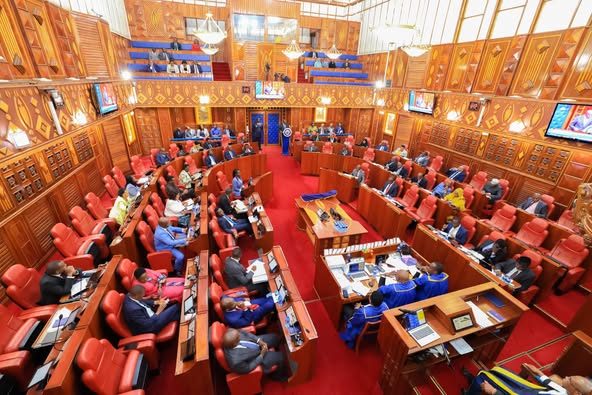The Senate has launched a fresh investigation into the controversial Sh14.5 billion tender for printing Kenya’s new currency notes, intensifying scrutiny over the Central Bank of Kenya’s (CBK) procurement processes.
The inquiry follows a petition by Busia Senator Okiya Omtatah, who cited massive irregularities in the contract awarded to German firm Giesecke+Devrient Currency Technologies (G+D). The Auditor General’s 2024 report had already flagged concerns, including the CBK’s failure to appoint a special procurement committee and the lack of oversight from the Public Procurement Regulatory Authority (PPRA).
According to Omtatah, CBK’s justification that approvals came from the National Security Council and other agencies was unconvincing, since the bank is not constitutionally classified as a national security organ. He noted that in 2005, an open tender process delivered better value, when British firm De La Rue was competitively awarded the contract at lower cost.
The Senate Finance and Budget Committee, chaired by Senator Ali Roba, will now determine whether CBK obtained Treasury approval for classified procurement, complied with procurement regulations, and provided detailed cost justifications. It will also examine whether Kenyans received value for money compared to past tenders.
CBK Governor Kamau Thugge has defended the deal, saying the urgency of replenishing worn-out notes justified classified procurement. He warned that a looming shortage of Sh1,000 notes in 2023 could have destabilised the economy, affecting price stability and the exchange rate. The German firm was contracted to print 2.04 billion notes, including Sh50, Sh100, Sh200, Sh500, and Sh1,000 denominations.
However, Auditor General Nancy Gathungu insists the CBK flouted procurement laws, undermining transparency and accountability.
The Senate committee is expected to recommend measures to strengthen oversight and safeguard public resources, especially in classified procurement deals.

